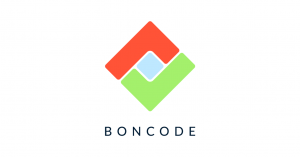Software. Oh man, we do love good software.
From customer management to financial transactions, companies rely heavily on software to stay competitive.
However, when software becomes a vital part of your trade, it’s crucial to make informed decisions based on independent facts.
Independent facts can be acquired through a multitude of different ways – from research to automated platforms, like BonCat, that help you gather all the needed intelligence to make those informed decisions.
But why gather those independent facts in the first place?
Embracing independent facts empowers companies to break free from the constraints of outdated technology and successfully embark on their digital transformation journey.
According to McKinsey’s research, outdated tech adds a stiff 40% increase to the costs of operations of your IT team. And independent facts can help you break free from the constraint of outdated technology and successfully embark on your digital transformation.
But wait, there’s more! These facts enable businesses to assess the root causes and quantifiable impacts of technical debt, prioritise modernisation efforts, and execute incremental improvements with agility.
1. Mitigating Risk and Ensuring Software Maintainability
When it comes to selecting software solutions, objectivity is key.
Relying on personal opinions and the experience of technical individuals is setting yourself up for failure. Your devs and IT department may easily choose solutions that look good, but quickly become impossible to maintain and scale.
However, by seeking independent facts, companies can make informed decisions that align with their interest and objectives. Independent facts provide an unbiased evaluation of different technologies, ensuring that software choices are based on performance, scalability and maintainability rather than subjective preference.
This reduces the risk of investing in technologies that fail to deliver the expected results.
2. Improving the time to market
Improving Time-to-Market In today’s fast-paced business environment, time is of the essence.
Independent facts enable companies to monitor the progress of different software suppliers and ensure adherence to architectural principles.
By relying on independent assessments, businesses can assess the management and value for money provided by their development partners.
This real-time monitoring facilitates faster decision-making, leading to improved time-to-market for software products and services.
3. Reliable Supplier Monitoring
When working with multiple development partners, it becomes essential to monitor their progress consistently. Independent facts provide a reliable benchmark for evaluating supplier performance.
By comparing the actual progress against the original facts, companies can assess whether suppliers are meeting architectural principles and delivering expected outcomes.
This helps maintain accountability among suppliers, ensuring that business goals are met within the specified timeframes.
4. Trust with Stakeholders
In the business world, trust is a vital currency. Independent facts offer external validation and increase confidence among stakeholders.
By leveraging independent assessments and providing stakeholders with transparent insights into the software development process, as well as the current status of the software portfolio, companies can establish and maintain trust and credibility.
Stakeholders, such as investors, customers, and regulatory bodies, gain confidence in the company’s commitment to quality and reliability.
5. A data-backed practice to compare different solutions
How can you manage if there’s no data to back up your claims?
This sort of ties in with one of our previous reasons, but it’s so important it deserved its own spot on the list as well. The key to choosing great software is indeed the key to data-driven decisions, but independent facts come with another tremendous benefit: They make it easier to make these decisions in the first place, speeding up processes and ultimately gaining an edge in today’s digital landscape.





